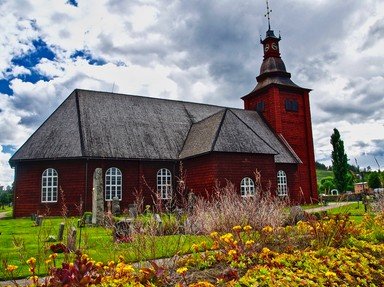Quiz Answer Key and Fun Facts
1. Since Stockholm's founding, believed to be during the 13th century, the city has always been Sweden's most important city and the center of its politics and government.
2. The Stockholm Bloodbath of 1520 was a result of which people, led by King Christian II, successfully conquering Stockholm (and Sweden)?
3. What is the name of the Vasa Swedish king who retook Stockholm from Christian II in 1523 and is sometimes called the father of modern Sweden?
4. The heart of Stockholm was destroyed by a fire in 1625. The fire was mostly contained to the Stadsholmen, which today is called Gamla Stan and is known as what in English?
5. During the 17th and early 18th centuries, which of the following was the main reason Stockholm was able to grow so much faster than other Swedish cities?
6. Stockholm saw a significant decline in its economy and spirit beginning in 1722 when Sweden lost territory to which growing European power?
7. Stockholm's economy began to take off once again in the mid 19th century when what object, first introduced in the city in 1806, allowed the city's shipbuilding industry to become profitable?
8. Stockholm was the home of the 1917 Third Zimmerwald Conference, the third meeting of which people?
9. Although Sweden claimed to be neutral during World War II, Stockholm was used by many nations, particularly allied nations, as an intelligence headquarters. In fact, Swedish professor Arne Beurling broke the cypher between Germany and occupied Norway and learned of which German military plan to invade the Soviet Union?
10. On February 28, 1986, Olof Palme became the first Swedish Prime Minister to be assassinated when he was shot while walking home from the movies with his wife. Who was his assassin?
Source: Author
Joepetz
This quiz was reviewed by FunTrivia editor
bloomsby before going online.
Any errors found in FunTrivia content are routinely corrected through our feedback system.

